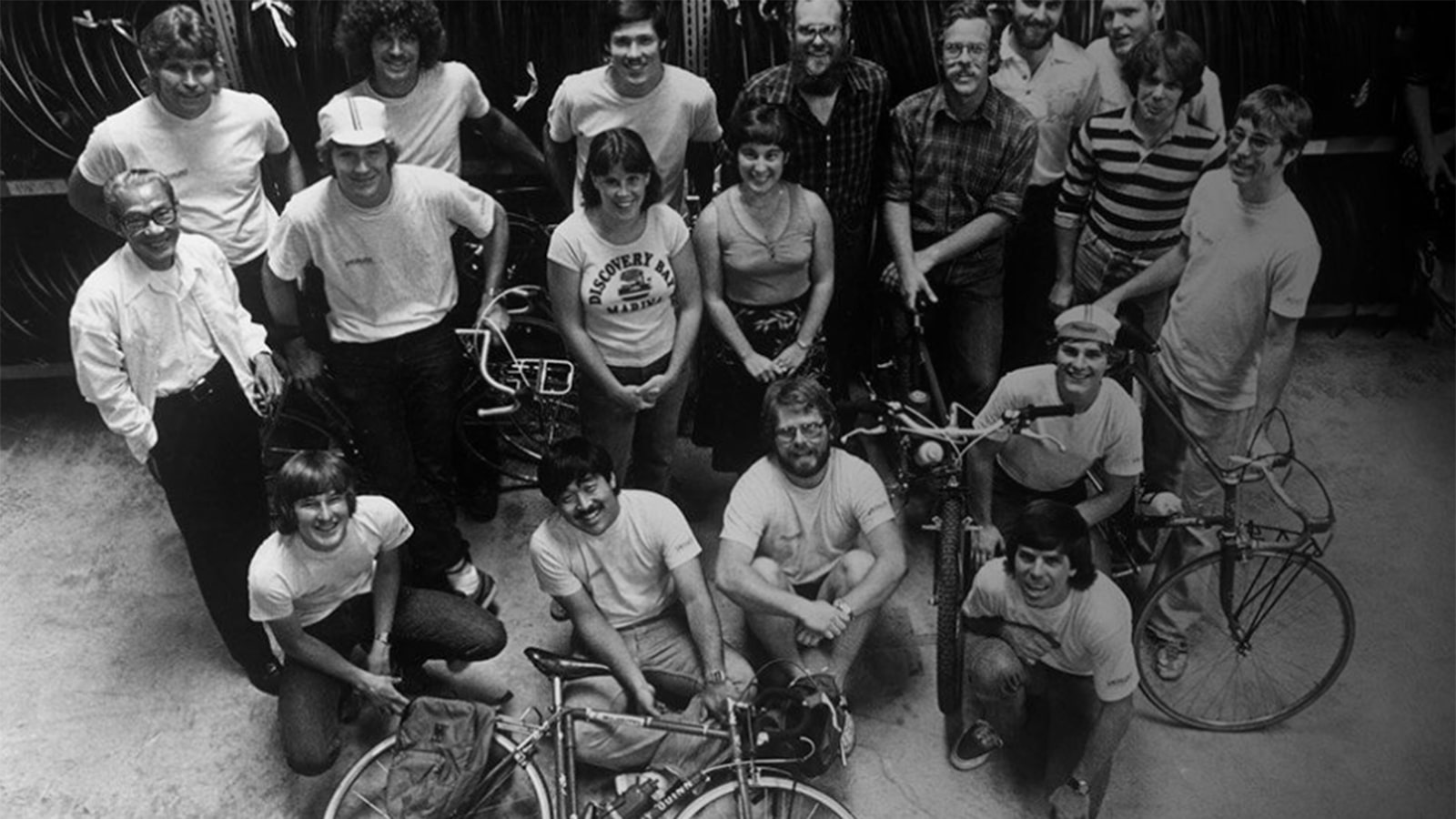Specialized founder Mike Sinyard on the power of the bicycle
Specialized Foundation reducing side effects of ADHD and improving health of 20,000 kids


This article first appeared on BikeRadar.
Specialized Bicycles currently provides two WorldTour teams with race bikes – while riders have won almost every notable race on Specialized bikes in the past. The American brand had yet another world championships win through Kate Courtney at this year's UCI cross country women's elite event and provides quality bikes for everyone, from toddlers' balance bikes to three-time road world champion Peter Sagan.
Now, through The Specialized Foundation, Riding For Focus is a program revolutionising the way schools and doctors deal with education through riding bikes.
The company was founded by a Californian named Mike Sinyard back in the 1970s and he is still at the helm as CEO of one of the biggest bicycle companies in the world.

What isn't as well known is that Sinyard had ADHD (attention deficit hyperactivity disorder) throughout school, eventually failing high school before self-funding his way through San Jose State University by building up and repairing bikes he found at flea markets and selling them on.
Today, Sinyard, through The Specialized Foundation, is looking to combat the effects of ADHD on children's learning. ADHD is a condition with which one in eleven American children are now diagnosed with and, by reducing the effects of the condition through cycling, Sinyard is aiming to reduce the need for prescription stimulants such as Ritalin.
By introducing regular exercise on bicycles before and during learning hours, school kids have a chance to improve concentration and reduce the need of prescription drugs, improving grades, as well as resulting in better general health and reduced obesity. The benefits of cycling are endless.
Get The Leadout Newsletter
The latest race content, interviews, features, reviews and expert buying guides, direct to your inbox!
"Riding is my Ritalin"
On a phone call to BikeRadar from California, Sinyard described his introduction to the project: "I was always very terrible at school, I couldn't concentrate at all and I was in the entry level class and everything. The thinking was, eventually, that I just wasn't that smart and later I dropped out of high school.
"Later I discovered riding [my bike - ed.] and that was pretty transformative for me, I was able to go and finish college and when I had my son, I realised he had the same tendencies as me and wanted to drop out of school.
"I was, of course, telling him 'don't do that' and I then saw an article that a doctor from Harvard Medical wrote and it was titled 'Riding is my Ritalin'.
"The story was about a kid who said 'when I'm riding my bike a lot, I don't need to take my Ritalin'. As I was reading it, I thought 'my God, that's me. That's my son' and it changed my world."
While the drug helps to manage symptoms, however, the side-effects and potential for abuse are unacceptable, according to Sinyard, and the Californian believes there should be a better solution.
"I called my doctor and asked him why this story isn't out there as well as it should be and his reply was no drug company is willing to pay for these studies and so that's where this story started six or seven years ago."
The Specialized Foundation's main focus is a combination of funding scientific research and adding tangible evidence to their findings alongside the school-based cycling programs. Aiming to increase accessibility to cycling at schools, improving students' mental and physical well-being and combining this with their research to grow and expand the program.
"Instead of talking about the personal and emotional stories, what's really going on now is what's happening in the schools but also combined with the medical research.
"Ultimately what we would like is parents and kids also to know there are other options. It doesn't always need to be pharmaceuticals and that the other options work. It would be great to create this awareness and to get doctors to know about this.
"At the end of the day, all exercise is great, we think cycling is above and beyond though and we're working to prove that. Pushing the pedals is one thing but there is also the sensory stimulation from riding of balancing and the fresh air."
The research began at Harvard Medical and now The Specialized Foundation is working closely with Stanford University. Through the Foundation's funding and the universities' expertise, the Riding for Focus program could revolutionise the way doctors, schools, parents and children address ADHD and similar conditions.
"We've created this special helmet that uses sensory devices to see what's happening to the brain while you're cycling and with that, they can show what your brain is doing before exercise, while cycling and when on medication and the results are there. This thing is real.
"This is much bigger than Specialized, this is much bigger than the bike industry. It has the potential to really help kids."
The Specialized Foundation's investment in their Riding for Focus program has, since 2016, seen 20,000 students have access to regular bike riding at school, which according to the Global Obesity Prevention Center (GOPC) at Johns Hopkins University, these 20,000 students will see benefits including 7,198 fewer overweight and obese kids, 9,313 years of life saved, $127.5 million in productivity loss averted and $119.8 million in direct medical costs averted.
"Right now, we have a lot of these programs in schools and parents are acknowledging that this is good for their kids. By the way, this isn't a difficult job to get kids to go out riding their bikes, it's fun and it's working."
Alongside the research, Specialized are obviously in a strong position to provide bikes to assist in the project and this is something the Specialized Foundation is supporting through an annual grant program.
"There are some schools that can afford this and they'll co-fund the project but there are a number of schools that can't afford it and we sponsor them. Every year we have a grant application and there are decisions made about which schools we sponsor," he explained. "The schools don't have to use Specialized bikes, they can use whatever bikes they want. As I say this is bigger than Specialized. My personal view is that we're going to look back in five years from now and ask why were we over-medicating our children?
"At the end of the day, we just want this project to be a go. It's focused mainly in the United States to begin with but we've started looking into the United Kingdom as well. We just wanted to get it started and prove it works."
Sinyard's legacy in cycling
Sinyard has built and run one of the biggest companies in the cycling industry during his life. Specialized bikes have won all of the biggest races, have made cycling accessible, as well as being the bike thousands learn to ride on. Asked what Sinyard wants his legacy to be, it's clear the Riding For Focus project is something Sinyard is beyond passionate about.
"I would say this is the biggest [legacy], this is the biggest one I've been involved in. I can foresee in the future that this becomes part of the schools, part of what doctor's prescription should be is for kids to ride bikes.

"We say pedals not pills. It can be very transformative. If you tell a kid to sit down and meditate, it's not going to happen. If you tell a kid, hey, go and ride a bike, no problem. They'll go on do that.
"There's a lot of data to how brains look before and after, how calm the kids are, how it reduces the obesity and improves test results. The test results are obviously something the schools relate to but it's obviously so much more than that."
The Specialized Foundation's target for growth is an ambitious one, but achievable. And if the project is anywhere as successful as Sinyard's business, it could drive real change.
Learn more about The Specialized Foundation and their Riding for Focus program here.